How To Prevent Personal Watercraft Theft
A few tips to deter thieves from stealing your PWC
Personal watercraft continue to prove attractive not only to watersports and boating enthusiasts…but also to thieves who would just as soon steal your fun.
According to the latest report from the National Insurance Crime Bureau, personal watercraft continue to be the prime target of thieves, with the category coming in at the #2 spot behind a combined catch-all category of canoes, dinghies, dories, jon boats, kayaks, lifeboats, paddleboats, sculls and skiffs. That means your favorite toy has a very big target on its back, and if you want to keep it safe and secure you’ll need to take a few extra steps to ward off the bad guys.
Here are some suggestions for both at home and on the water…
At The House
A large percentage of personal watercraft are stored on a trailer, a setup that makes for a quick getaway…day or night. I once noticed a truck pulling a neighbor’s pair of craft pulling out of their driveway about 10 a.m. and slowly cruising down the street. As the craft had long been for sale, I figured they had finally found a buyer. Turns out the craft had just been stolen…in a quiet neighborhood…in front of several neighbors home during the day…in broad daylight.
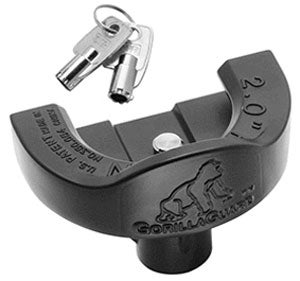 A coupler lock will make it more difficult for a thief to make off with your trailer.
A coupler lock will make it more difficult for a thief to make off with your trailer.If you don’t want to be the victim, start by making it harder to get that trailer off your property. Add time to the process of nabbing your craft and you’ll substantially lower the odds it gets swiped.
A coupler lock, like Fulton Performance’s Gorilla Guard (about $40), is a good start. These devices work by covering the underside of the hitch itself and preventing your trailer coupler from accepting a hitch ball. Yes, your existing hitch likely has a spot to fit a lock in place of a locking pin, but that won’t keep the dedicated thief away for long. Bolt cutters can snap a padlock in about two seconds; a simple crescent wrench can open things up from below. Cover up the actual spot where the ball needs to engage with the hitch and you’ve thrown a monkey wrench into a thieves plan. Just make sure you get an actual keyed version of whatever lock you choose. Some use a simple generic key that makes it far easier for a thief to open should they have the right tools.
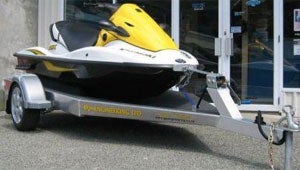 If you can’t store your trailer in a garage, at least make it hard to access by parking your car in front of it.
If you can’t store your trailer in a garage, at least make it hard to access by parking your car in front of it.You can also take things a step further by actual padlocking your craft and/or trailer to a nearby object, like a tree or sturdy structure. I’ve even seen people pour a concrete anchor into a hole in the ground, and place an eyebolt in the cement while it cured. Once finished, they had a secure locking point to attach a chain and padlock. You can do the same thing with a driveway slab.
Another great tip is to block your craft in. If possible, keep it behind a fence and out of sight from the road. If you have the garage space, by all means use it. That way drive-by thieves may not even notice your craft. Even if they do, they’ll have to contend with the extra step of a gate or garage door that, hopefully, is also locked up tight. At night, keep a car positioned in front of the craft and trailer so that they can’t be easily rolled away. In more theft-prone areas, you may also want to padlock the craft to the trailer itself to prevent a crew from literally lifting your craft right off the trailer.
On The Water
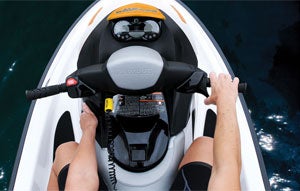 Simply removing the safety lanyard when you park your PWC will deter some theives.
Simply removing the safety lanyard when you park your PWC will deter some theives.On the water or at the beach your attention is much more focused on your PWC, but theft is still possible. When unattended, remove the safety lanyard. It’s a simple deterrent that will prevent the quick, casual theft, but not a long-term solution (except for Sea-Doo, which uses a coded, theft-prevention lanyard). For added security, remove the craft’s key or activate its security system if so equipped. Don’t have that luxury? Even removing the negative battery cable from the battery post will prevent someone from starting the craft, buying you valuable seconds.
Docking overnight? Lock and secure with a strong cable lock. Like anytime you leave your craft unattended, remove valuables that you may have stowed aboard, as well as any registration papers you may have in the craft.
When trailering back and forth to the water, lock your trailer to your car with a hitch pin lock. It should prevent quick-access thefts from happening in parking lots.
Stolen? Now What?
 Report any theft as soon as possible and hopefully the police will be able to find the culprit.
Report any theft as soon as possible and hopefully the police will be able to find the culprit.In the unfortunate event your craft is actually stolen, do what you can to increase your chance of recovery. Take and keep photos of your craft from a variety of angles, including close-ups of hull ID numbers and any unique identifying marks. Keep photos and a written inventory of any valuable gear that goes along with your craft. Notify authorities immediately, but also keep an eye on places like Craigslist. Thieves may be clever, but they’re not always rocket scientists. A recent news article detailed a woman who had her prize stolen, only to see it listed on the site several days later.
Should you find your crook, let the police do their job. Though it may be tempting to play vigilante, it’s not usually the safest choice. Let the authorities handle things…
…and hope that karma does the rest.
Related Reading
How To Tie Secure Knots for Your PWC
Fuel-Saving Tips for Personal Watercraft
Upgrading a PWC Trailer to LED Lighting
How to Repair Personal Watercraft Hull Damage
Get PersonalWatercraft.com in your Inbox!
Like PersonalWatercraft.com on Facebook
Comments
Most Popular
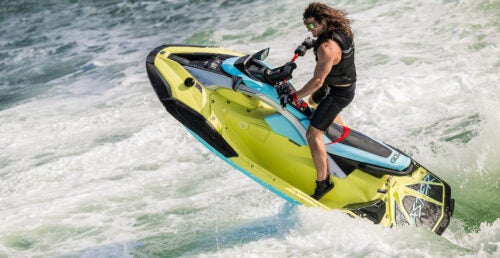
2025 Yamaha JetBlaster PRO 2-Up Review
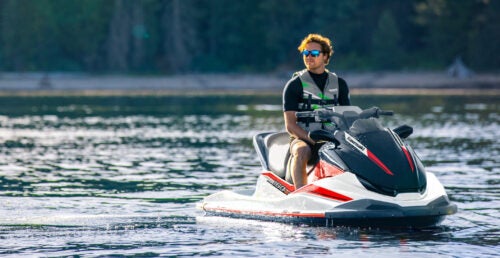
2024 Kawasaki Jet Ski STX 160X Review
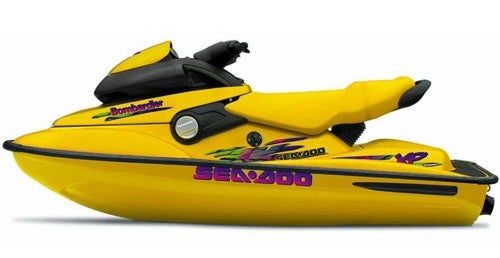
Remembering the Sea-Doo XP
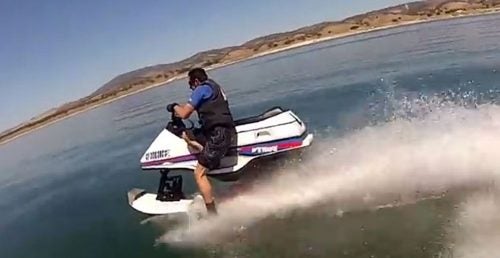
Whatever Happened to the Wetbike?
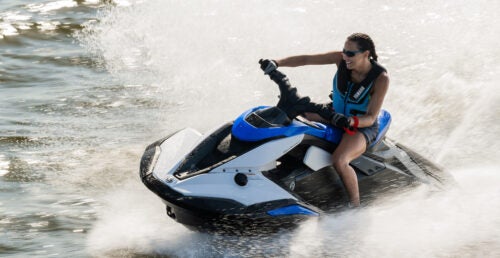
2025 Yamaha JetBlaster Review
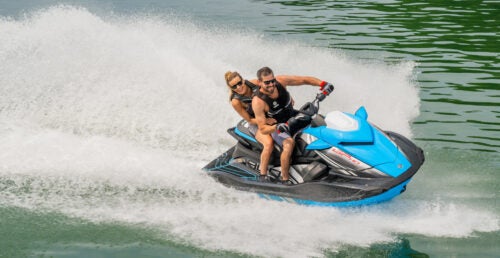
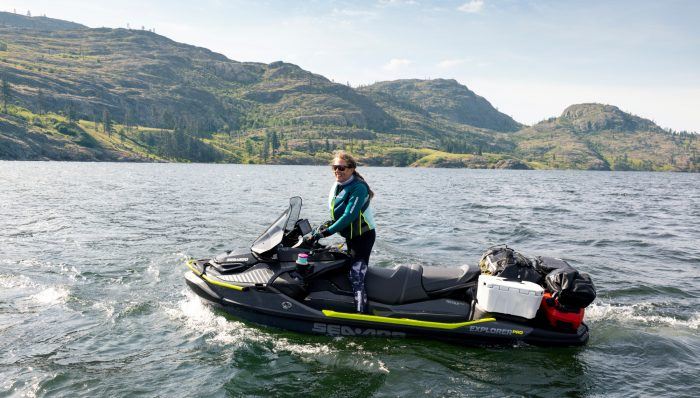
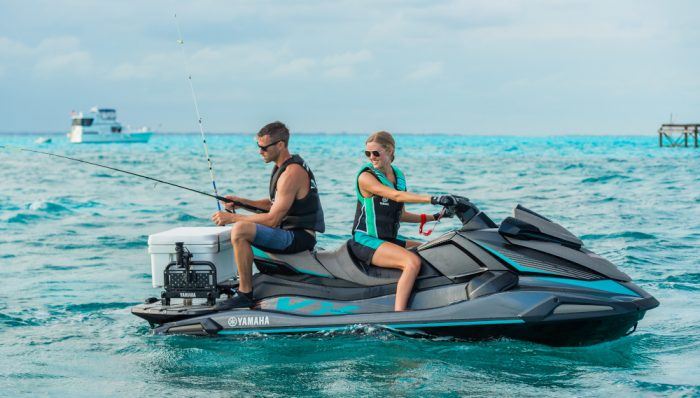
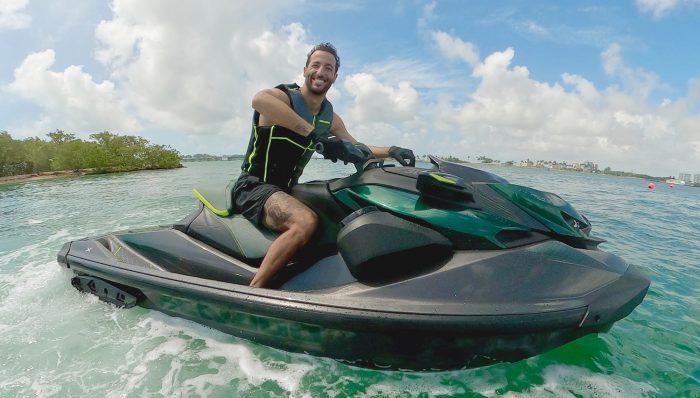



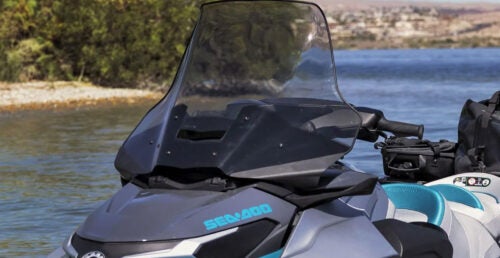



 Your Privacy Choices
Your Privacy Choices